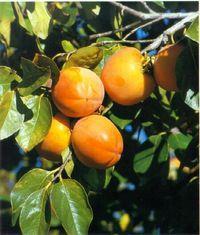
Growers in the Valencia region of Spain are abandoning stonefruit production in their droves in favour of persimmon. According to a study carried out by growers’ association Ava-Asaja using statistical data from the ministry of agriculture, the area planted with apricot, nectarine, peach and plum trees in the eastern Spanish region has fallen by 20 per cent in the last five years and by 35 per cent since 2002.
The organisation attributes the “unstoppable” decline to the lack of sustainable profits in the sector, which reached a head last season with the aftermath of the deadly E. coli outbreak in Germany that led to rock-bottom fresh produce prices.
Producers are instead turning to production of persimmon or kakifruit, which has been earning them better returns. Association president Cristóbal Aguado said: “This sector suffers from tremendous price volatility, whether that be from one season to the next or even within the same season.
“A year on from the cucumber crisis, the European Commission still has no structural solution on offer nor is it planning to consider any as part of the imminent reform of the Common Agricultural Policy,” Aguado added.
He is therefore calling for market intervention measures that at least guarantee “dignified” prices for producers.
As the Spanish stonefruit season winds down, prices are above the cost of production, but not enough to compensate for the significant fall in volume caused by frosts in February, problems with fruit set, fruit fly and also skin finish. The worst affected area in the region has been Ribera Alta, well known for its kakifruit output, where temperatures below freezing halved stonefruit yield this year.



